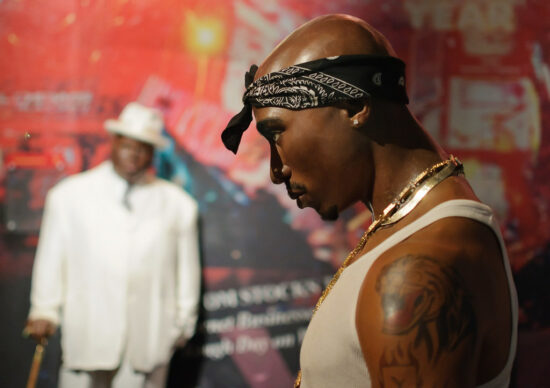Tupac Amaru Shakur, known as Tupac Shakur or by his stage name 2Pac, was an iconic American rapper, actor, and social activist. He was born on June 16, 1971, in East Harlem, New York City, to a family deeply involved in the Black Panther Party, a revolutionary black nationalist and socialist organization. Tupac’s parents, Afeni Shakur and Billy Garland, were active members in the movement, which heavily influenced his upbringing and later shaped his art and activism.
Early in his life, Tupac and his family moved to Baltimore, Maryland, where he attended the Baltimore School for the Arts, specializing in acting, poetry, jazz, and ballet. His creative talents flourished during this time, and he developed a passion for performance and storytelling.
Tupac’s journey into the music industry began in the late 1980s when he joined the rap group Digital Underground as a backup dancer and rapper. His talent quickly caught the attention of the music industry, leading to his solo debut album, “2Pacalypse Now,” in 1991. The album addressed social issues such as police brutality, racism, and inner-city life, establishing Tupac as a provocative and conscious voice in rap music.
Throughout his career, Tupac released several critically acclaimed albums, including “Strictly 4 My N.I.G.G.A.Z…” (1993), “Me Against the World” (1995), and “All Eyez on Me” (1996), which is considered one of the greatest hip-hop albums of all time. His music often reflected his personal experiences and struggles, exploring themes of poverty, violence, and the complexities of being a young black man in America.
Beyond his musical accomplishments, Tupac also ventured into acting. He starred in films such as “Juice” (1992), “Poetic Justice” (1993), and “Above the Rim” (1994), showcasing his versatility and talent as an actor. Tupac’s performances resonated with audiences and demonstrated his ability to bring depth and authenticity to his roles.
Unfortunately, Tupac’s life was plagued by controversies and legal issues. He was involved in several altercations and was shot five times in a robbery and assault incident in New York City in 1994. He survived the attack but believed that it was orchestrated by individuals within the music industry, fuelling his paranoia and adding to the conspiracies surrounding his life.
Tragically, Tupac Shakur was fatally shot on September 7, 1996, in a drive-by shooting in Las Vegas, Nevada, at the age of 25. His murder remains unsolved, and conspiracy theories continue to surround the circumstances of his death.
Despite his untimely demise, Tupac’s impact on music and popular culture has endured. His lyrics and messages continue to resonate with audiences worldwide, as his songs tackle social injustice, inequality, and the struggles of marginalized communities. Tupac’s influence extends far beyond music, inspiring generations of artists and activists to use their platform to address social and political issues.
Tupac Shakur’s legacy as an artist and social activist remains potent, with his music and words serving as a testament to his enduring impact. His contributions to the world of hip-hop and his dedication to speaking out against injustice have solidified his place as an influential figure in American history.
Sources:
Tupac Shakur: Biography, Rapper, Actor
Tupac Shakur | Biography, Songs, Albums, Movies, & Facts | Britannica







